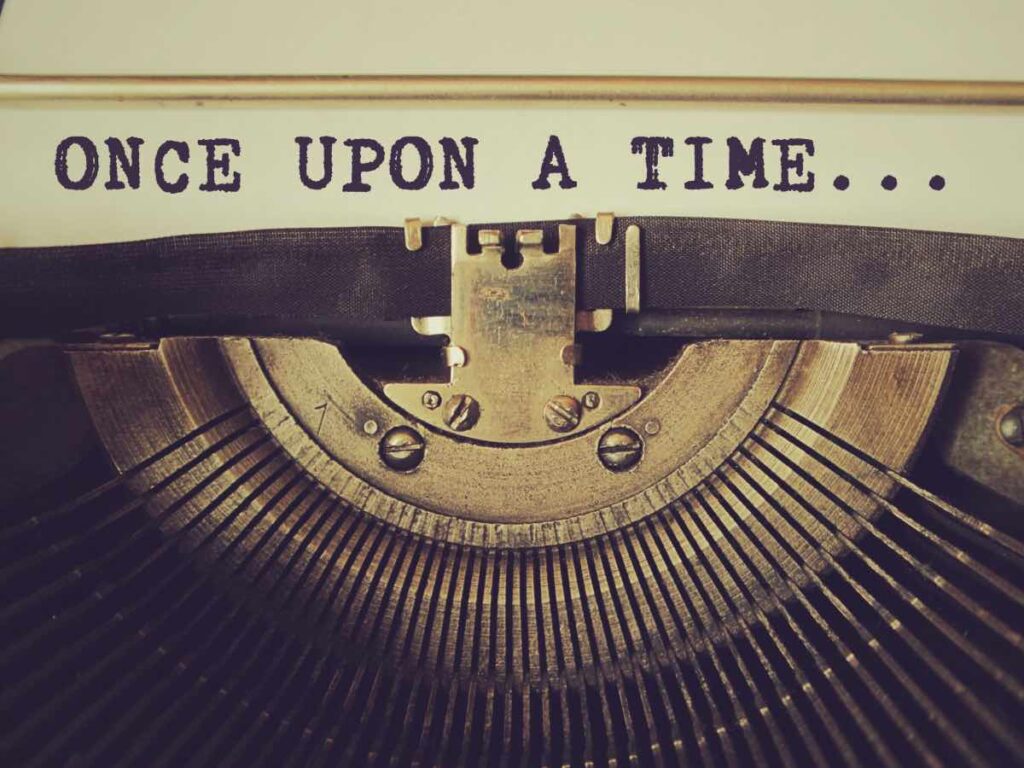Master the Art of Introductions: How to Start a Compelling Essay About Yourself
A National Association for College Admission Counseling (NACAC) survey says that up to 56.4% of college admissions officers say that application essays have moderate to considerable importance in the college admissions process.
More selective institutions tend to rate application essays more highly.
For as long as you are applying to a college or university with a holistic admissions policy, it’s important to take writing an application essay seriously.
After all, it serves as an opportunity for you to make yourself stand out from other hopefuls whose academic profiles are similar to yours.
Since admissions officers would like to know applicants from a perspective beyond their high school GPAs, standardized test scores and extracurriculars, it’s no wonder why they ask students to write stuff about themselves.
And that is why the following college essay prompts tend to be commonplace:
- Share a story from your life
- Tell something about yourself
- Describe the world you come from
- Discuss an accomplishment
- What captivates you?
- What would you say is your greatest talent or skill?
- What is important to you and why?
Nothing can be easier to talk about in writing than yourself.
After all, no one else on the face of the planet knows you better than you.
However, it can be the most challenging to discuss, too, especially knowing that the resulting composition can spell the difference between a much-coveted offer to enroll and a much-feared rejection letter.
In this post, I will provide some foolproof tips and tricks on how to start an essay about yourself and increase your chances of getting an offer to enroll in your top-choice college.
In addition, I will show you some examples of actual admission essays that have worked in order for you to have an idea of what winning essays look like.

Ask and You Shall Receive
No matter how simple the essay prompt may be, things can quickly get complicated and the thoughts in your mind can spiral out of control the minute you start deciding just which things you should discuss.
This is when the importance of compartmentalizing by coming up with mini-prompts comes in.
In order to be able to provide an answer to the big question, which is the about-me essay prompt, answer smaller questions that have something to do with the mother ship.
By coming up with short answers to small questions, the grueling task of producing 400 to 600 (or whatever is the requirement) coherent words can become simpler.
Suppose that you chose to write about this particular essay prompt: “Recount a time when you faced a challenge, setback, or failure — how did it affect you, and what did you learn from the experience?”
And here are the mini-questions you could ask and answer:
- What was that unfavorable moment that made an impression?
- When did it happen?
- Why did it create a huge impact on you?
- What was it that you did to deal with that challenge, setback or failure?
- Were you able to manage the incident quite well?
- How did that fateful incident change or affect your life?
- Is there a possibility for it to happen again?
- What would you do just in case you encounter the same thing once more?
- What sort of lesson that the said experience had allowed you to learn?
The answers to these questions can help you come up with the most detailed yet concise and introspective yet accessible answer to that thing regarding yourself that college admissions officers would like to know about.
Organize Everything Into Parts
Edmund Burke, who is a British philosopher, statesman and economist, once said that good order is the foundation of all things.
And that is why the next step to take is to take a look at all the answers you gave to your mini-questions and determine which ones belong the most to your about-me essay and how they fit together.
Yes, there’s no need to include all the answers obtained — just the ones that matter the most.
Generally speaking and in most instances, narrowing your focus can make it easier to write a cohesive, well-developed and engaging application essay.
This is true no matter if you are planning on talking about yourself or someone or something else. Your essay should have a central idea that’s clear and distinct.
After making up your mind as to which thoughts you will lay around a central idea, it’s time to get everything organized. Otherwise, you could wind up presenting a mishmash of reflections that could harm your application.
Breaking up your essay into parts that flow right into each other is nothing you haven’t heard about yet.
As a matter of fact, it’s all about following the most basic format of an essay, which all of us first encountered during the third or fourth grade when we were introduced to the art of essay writing:
- Introduction
- Body
- Conclusion
Organizing your mini-question answers into these three main parts of an essay is not writing the application essay about yourself per se — merely, it’s just to give you a rough idea of what the finished product would look like.
Let’s take a quick look at each one of these components of a foolproof about-me essay:
- Introduction. While it should provide some sort of a road map of the application essay in a logical order alright, it should also have what’s referred to as a thesis statement. Arguably the most important element of an introduction, the thesis statement provides the aim of the written composition.
- Body. You can think of this part as the meat of your application essay. Since you will be writing about yourself, take this opportunity, which, in the world of college application, usually consists of 3 to 5 paragraphs, to give those college admissions officers a sense of who you really are.
- Conclusion. Simply put, the conclusion is where you restate the main thoughts and ideas of your about-me essay, albeit in a simplified manner. The goal is to ensure that the audience — individuals who hold your academic fate in their hands, will be satisfied and remember you better than the rest.

5 Ways To Start Essay Strong and Impactful
Since this post is, first and foremost, about starting an essay about yourself, it’s just right that we talk in-depth about one of the most critical parts of an about-me essay or any other type of essay.
And it’s none other than the introduction, whose many purposes include grabbing the attention of anyone who reads the piece.
Keep in mind that while it’s true you are going to write about yourself, the fact remains that you are going to write it for others to read — college admissions officers, in this case.
And that is why it’s a must that you break the ice in a way that can work to your advantage the most.
Your application essay’s introduction, typically, is the very first paragraph.
You can think of it as a chance for you to present whatever it is that you want to say in a manner that can entice everyone to keep reading. Opening your application essay correctly, in a way, is just like starting the week right.
Earlier while we were talking about the three main parts of the about-me essay, I briefly discussed introduction. What I did not mention back then, on purpose, is that it should start with a killer sentence!
A hook — you can also call an opening sentence this.
Simply put, just like what the name pretty much insinuates, a hook is written in order to captivate your application essay’s readers and inspire them to devour its entirety.
A successfully written hook can entice the audience to want to check out the rest of your submission rather than skim through it or, worse, disregard it altogether.
Coming up with a hook, in some instances, can be hard unless you have fully developed the entirety of your sentence. But it can be easier, too, once you have organized everything you would like to discuss, which we tackled earlier.
There are some hook-creation strategies that many count on, and here are some popular examples:
1. Ask a question
The best question to ask when opening your application essay is something that’s specific enough to paint the readers a vague picture of the entirety of the written piece but broad enough to keep them from knowing the answer right away. You can either answer the question or invite the audience to make their own.
2. Share an anecdote
Because it’s short and interesting and about a real person or incident, an anecdote right at the start of your about-me essay can draw in the admissions officers as well as give them an idea of what you’re up to. Using an anecdote as a hook is so effective that it’s commonly employed by many when doing all kinds of writing tasks.
3. Set the scene to excite the reader
Nothing can pique the curiosity of the readers more than an essay that starts right in the middle of an important scene. It’s dynamic, startling and intriguing. And after closing the scene that started out of the blue, you can briefly explain its significance to the essay prompt you have chosen.
4. Give an example or a fact
Especially if you wish to put the spotlight on your skills, talents, achievements or other things that make you unique, you may consider starting your essay with an interesting example or fact.
For instance, you can open with you scaling Mount Rainier or the fact that it’s the deadliest mountain in the US if you are into mountain climbing.
5. Start with the quote
One of the most common ways to kick things off is by starting the essay with a quote. But because what you will be writing is about you, naturally, college admissions officers will want to know your thoughts about yourself, not someone else’s words. But as always, there are exceptions to the rule.
Show Yourself and Show Off
Just because your about-me essay is a part of the college application process doesn’t necessarily mean that it has to look scholarly and sound dry and boring.
Because colleges and universities ask for personal essays in order to learn more about applicants, it’s definitely a good idea to show some personality!
Humor, emotion, vulnerability — don’t be too afraid or embarrassed to display a little bit of it.
Admissions officers are constantly looking for individuals who can bring something new and fresh to the campus, and letting your personality show lets them determine whether or not you are what they want.
It’s also not uncommon for many college-bound teens to stay away from bragging in their application essays.
But I say if you have it, flaunt it!
Talents, abilities, personal qualities — all these things are considered in the holistic admissions process. Choosing to keep yours to yourself may keep you from shining and making an impression, too.
When showing off, however, remember to stay on topic and answer the essay prompt.
Refrain from talking about random and unrelated special skills or amazing achievements of yours. You can inject one or two here and there while maintaining a cohesive application essay that makes sense.
And since it’s your own personal story that you are sharing in an admissions requirement that asks you to talk about yourself, it makes perfect sense that you write in the first-person point of view.
Throughout the article, make sure that you use “I” and “me” because a consistent point of view is a mark of a good essay.
But keep in mind that you may also use anecdotes and personal opinions (of others) to make a point or stress an idea, which is why it’s fine for a third-person perspective to make its presence known if necessary.
Admissions Essays That Worked
We have arrived at the part of this post where I give you a few examples of good about-me essays. As a matter of fact, they’re so good that their respective writers got acceptance letters for themselves!
Read Also: 10 Best Common App Essay Ideas
See if you will be able to spot the things that have made these real-world admissions essays complete standouts…
Title: Lifelong Learning
Source: https://www.collegeessayguy.com/blog/college-essay-examples
The white yarn slipped off my aluminum crochet hook, adding a single crochet to rows and rows of existing stitches that looked to be in the form of a blob. Staring at the image of the little unicorn amigurumi lit up on the screen of my laptop, and looking back at the UMO (unidentified messy object) number five, I was extremely perplexed. This had seemed so easy. Round 1, construct a magic circle with 6 single crochets. Done. Round 2 was an increase round resulting in a total of 12 stitches. Also done. The remaining rounds were blurred into hours and minutes that should have resulted in a little white creature in the likeness of a unicorn, but sitting on my desk (much like the four days before today) was a pool of tangled white yarn. It was not until day seven that a creature with a lopsided head whose horn was the only identifier of the mythical being emerged.
Title: Dead Bird
Source: https://www.collegeessayguy.com/blog/college-essay-examples
Smeared blood, shredded feathers. Clearly, the bird was dead. But wait, the slight fluctuation of its chest, the slow blinking of its shiny black eyes. No, it was alive. I had been typing an English essay when I heard my cat's loud meows and the flutter of wings. I had turned slightly at the noise and had found the barely breathing bird in front of me. The shock came first. Mind racing, heart beating faster, blood draining from my face. I instinctively reached out my hand to hold it, like a long-lost keepsake from my youth. But then I remembered that birds had life, flesh, blood.
Title: Queen’s Gambit
Source: https://apply.jhu.edu/application-process/essays-that-worked/
No, Dante. Stop, think, and look at the entire board. I was thoroughly confused. I thought I had procured the complete solution to this elaborate chess puzzle. What am I missing? A knight fork, a bishop move? Am I in check? After a quick glance at the left side of the board, I slapped my hand on my head as I suddenly realized what my chess coach was telling me. My queen was sitting unused, positioned all the way on the other side of the board, and I had no idea. If I were to sacrifice my queen, the opposing rook would be forced to capture it, allowing me to finish the game in style with the illustrious "smothered mate."
Just Before You Start an Essay About Yourself
It’s easy to write something about yourself. But writing something autobiographical in nature for the sake of getting admitted to a college or university is a complete game changer — you will have to discuss a personal experience while attempting to get your hands on an acceptance letter.
Above, I gave a handful of tips on how to start an essay about yourself as well as a few winning examples.
Take your time when writing an about-me essay. College admissions experts agree that the best time to start writing is in the summer before your senior year of high school. Good luck!
Read Next: How Important are Supplemental Essays?
Disclaimer: The views and opinions expressed in this article are those of the authors and do not necessarily represent those of the College Reality Check.





